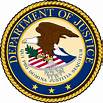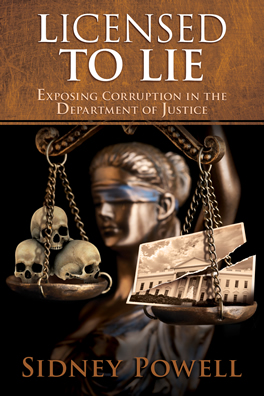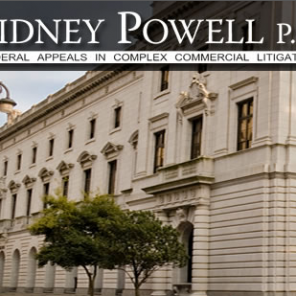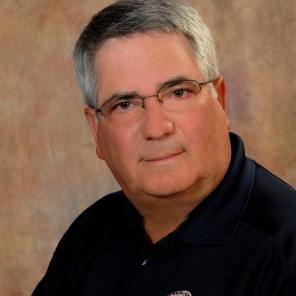All Talk, No Action. FOURTH CIRCUIT REBUKES FEDERAL PROSECUTORS for Repeated Disregard of Obligations
 HERE WE GO AGAIN. In United States v. Bartko, an opinion released in late August, the Fourth Circuit called out the US Attorney’s Office for the Eastern District of North Carolina for its misconduct in discovery practices. Citing a series of recent opinions “involving discovery abuse by government counsel in this district,” the panel of the Fourth Circuit took the federal prosecutors to task:
HERE WE GO AGAIN. In United States v. Bartko, an opinion released in late August, the Fourth Circuit called out the US Attorney’s Office for the Eastern District of North Carolina for its misconduct in discovery practices. Citing a series of recent opinions “involving discovery abuse by government counsel in this district,” the panel of the Fourth Circuit took the federal prosecutors to task:
Mistakes happen. Flawless trials are desirable but rarely attainable. Nevertheless, the frequency of the “flubs” committed by this office raises questions regarding whether the errors are fairly characterized as unintentional. Moreover, the government’s responses to queries regarding its practices are less than satisfactory. For example, in this case, when asked at oral argument about its failure to correct Scott Hollenbeck’s testimonial misstatement regarding promises he had received, the government suggested that at the time Hollenbeck made the misstatement, trial counsel had no recollection of the promises made to him. But as Judge Keenan aptly noted, such an idea “just strains credulity.” And here, when we gave counsel an opportunity to correct her farfetched assertion, she refused. Faced with such behavior, we must conclude that this office is uninterested in placating concerns about its practices.
While the Court upheld the convictions in this case, for (surprise, surprise) a lack of materiality, they did, at least, opine on possible remedies in the event the prosecutors continue to flout the Constitution:
The problem is that the government appears to be betting on the probability that reams of condemning evidence will shield defendants’ convictions on appeal such that at the trial stage, it can permissibly withhold discoverable materials and ignore false testimony. Make no mistake, however. We may find such practices “harmless” as to a specific defendant’s verdict, but as to litigants in the Eastern District of North Carolina and our justice system at large, they are anything but harmless. “No [one] in this country is so high that [she or] he is above the law. No officer of the law may set that law at defiance with impunity. All the officers of the government, from the highest to the lowest, are creatures of the law and are bound to obey it.” United States v. Lee, 106 U.S. 196, 220 (1882). The law of this country promises defendants due process, U.S. Const. amend. V, and the professional code to which attorneys are subject mandates candor to the court, see Model Rules of Prof’l Conduct R. 3.3., and fairness to opposing parties, see id. R. 3.4. Yet the United States Attorney’s office in this district seems unfazed by the fact that discovery abuses violate constitutional guarantees and misrepresentations erode faith that justice is achievable. Something must be done.
[I]f this sort of behavior continues in subsequent cases, this Court may wish to require that the United States Attorney for the Eastern District of North Carolina, as well as the trial prosecutor, be present at oral argument so that the panel can speak directly to her or him about any alleged misconduct. Sanctions or disciplinary action are also options. To underscore our seriousness about this matter, and to ensure that the problems are addressed, we direct the Clerk of Court to serve a copy of this opinion upon the Attorney General of the United States and the Office of Professional Responsibility for the Department of Justice. The transmittal letter should call attention to this section of the opinion. **** What we know is that we are repeatedly confronted with charges of discovery abuse by this office. What we know is that our questions regarding this abuse remain unanswered. And what we know is that such conduct is unacceptable. Appropriate actions need to be taken to ensure that the serious errors detailed herein are not repeated. Whatever it takes, this behavior must stop (emphasis added).
Acknowledging the problem is obviously the beginning of a resolution, but the Court’s opinion crystallizes something more fundamental about prosecutorial misconduct by federal (or state) prosecutors. There simply are no consequences or consequences of sufficient significance to deter prosecutors hell-bent on subverting our Constitution. And until there are serious consequences, including reversal of convictions, disbarment, and sanctions against the prosecutors, we will all continue to suffer from blatant disregard of the law with impunity by the very people who are sworn and empowered to protect us.
Moreover, the recent and disheartening Court decisions holding that the ethical rules governing prosecutors are coterminous with Brady materiality (i.e. if there has been no Brady violation sufficient to upset a verdict than there has been no ethical violation) simply gives these unethical prosecutors license to violate defendants’ Constitutional rights with impunity. As the Fourth Circuit rightly states, “[s]omething must be done.” But in its failure to do anything meaningful (such as actually refer the matters for investigation by OPR and the Court’s own Bar and State Bar), the court simply reinforces how inadequate our system is to police those who would violate our legal rights.
TEL











Comments are closed.